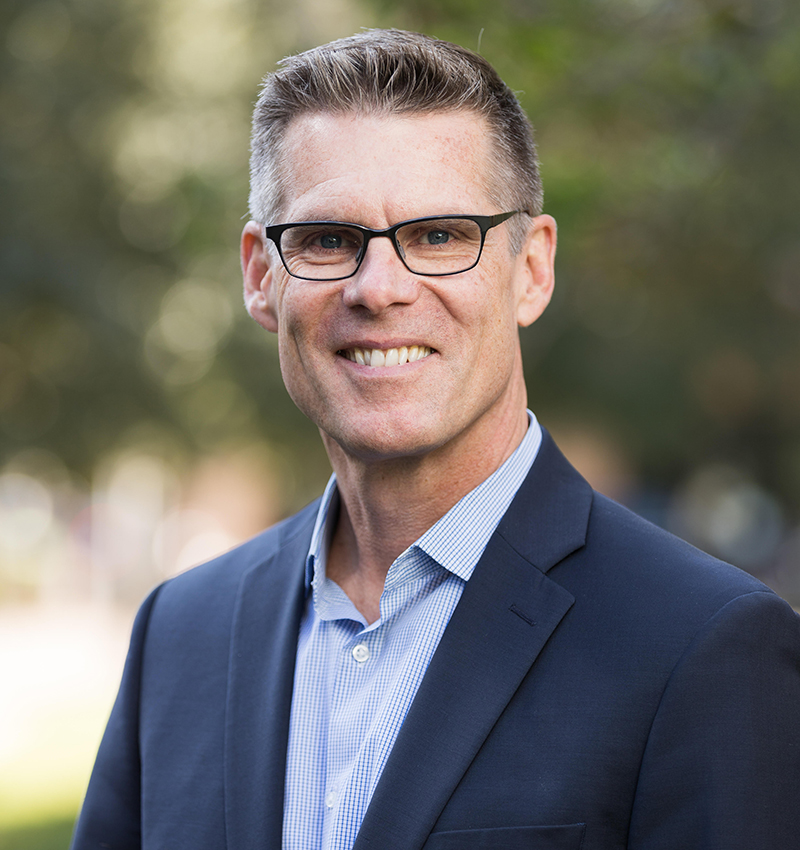Primed for Amazon-Style Question Shopping, New Meridian Opens Fresh Chapter for Maligned Common Core Test

Updated Nov. 20
America was a simpler place 10 years ago ago. Tesla had not yet built a car. Kanye was not yet dating Kim. And testing based on Common Core State Standards, which then-Secretary of Education Arne Duncan called “an absolute game changer in public education,” had yet to begin.
What a difference a decade makes. In 2018, Tesla has three models, Kimye have three children, and politicians on the left and right have distanced themselves from a Common Core brand they view as toxic. As a result, the once-mighty state testing consortia devoted to rolling out assessments based on the standards have dissipated. The number of members in one of the two consortia, Smarter Balanced, has shrunk by more than half. And by the 2019-20 school year, PARCC, which once numbered 26 members, will be down to two at most.
But if entrepreneur and assessment expert Arthur VanderVeen has his way, PARCC’s bank of more than 10,000 questions will live on in state assessments around the country.
PARCC is dead. Long live PARCC.
VanderVeen is the founding CEO of New Meridian, a nonprofit he created with other assessment industry veterans to make a run at acquiring the rights to PARCC’s question bank. VanderVeen’s team prevailed in April 2017, and now New Meridian is moving to adapt PARCC to an environment where multi-state consortia are going the way of the dinosaurs.
Most states across the country are developing their own custom assessments instead. But with pressure to keep costs down while maintaining the high academic bar set by PARCC and Smarter Balanced, VanderVeen believes states will need help. He is attempting to reimagine PARCC as a catalog of questions that states can shop for online and add to their carts, Amazon-style.
So far, 11 states have signed up to license New Meridian’s content, and VanderVeen is crisscrossing the country to persuade others. Many state education officials and experts are loath to touch a brand that has soured through its connection to the politically unsavory Common Core. But states are also keen to avoid becoming the next Tennessee, which left PARCC and spent more than $30 million to develop its own test, only to see it be plagued by technical problems.
Drawing on lessons from a failed startup he led 20 years ago, VanderVeen is attempting to leverage the test items, which even PARCC’s critics concede are high-quality, and salvage an effort jump-started by a $170 million investment from the federal government.
“This is unprecedented,” VanderVeen said, emphasizing the point six times during an hour-long interview with The 74. “This idea that a state could license content from an existing pool, a really high-quality pool, and create their custom test cheaper — more cost-effectively than what it would take for them to go through a two-year cycle to develop new content — that’s really immediately appealing.”
New Meridian is led by a team of seven, half of whom previously worked at Pearson, the education publishing and assessment conglomerate. VanderVeen did not, but he worked with the other two top executives at past positions at the College Board and Compass Learning (now Edgenuity). In addition to state contracts, New Meridian is being supported by the Bill & Melinda Gates Foundation, the Hewlett Foundation, the Charles and Lynn Schusterman Family Foundation, and the Baton Rouge Area Foundation.
Before being awarded the rights to manage PARCC’s item bank, VanderVeen and his team spoke with 14 current and former heads of state education departments, looking to understand what went wrong with PARCC and Smarter Balanced. They heard about a toxic brew of too much testing, followed by a too-long lag in receiving results. The partisan politics that touched anything related to Common Core only compounded the mess, overshadowing the high ratings education experts gave the test content itself.
“If it were [only] a matter of quality, states would still be in the consortia,” VanderVeen said.

VanderVeen’s first foray into education was through a grant-funded company he founded in the late 1990s to develop digital curricula. The company attracted 50 rural school districts in Texas, but ultimately VanderVeen concluded the idea was “20 years too early” and the company folded. He said he “learned some existential lessons from that experience beyond just the difficulty of making payroll.”
“If you’re going to survive in a really customer-centric environment, you have to be really clear about the value you’re delivering to meet clear customer needs, and you need to deliver that efficiently and competitively and cost-effectively,” VanderVeen said.
VanderVeen believes there are parallels to how the consortia, fueled in their early years by government funding, became detached from the audience they served.
“They never had to operate in the discipline of being customer-centric and really deliver value and ask questions. Is a 14-hour test too long? Might states balk at that? Is the cost too high? Are the constraints of working with a single vendor just not going to be acceptable to states? They didn’t have to think about that until they did. In an open market, states, or customers, have choices, and states made choices, and they walked away.”
As the consortia shrunk, PARCC’s state-led governing board chose to change direction and selected New Meridian to lead the way.
“Arthur is being responsive to states’ needs,” said Hanna Skandera, the former New Mexico secretary of education who chaired the PARCC governing board until the spring of 2017. “The transition has maintained its commitment to high-quality content, a collaborative effort among educators, economies of scale, and the best elements that PARCC offers with the most flexibility for states.”
States are still finding their footing in this new landscape. New Jersey’s governor, Phil Murphy, won election in 2017 partly on a promise to “end PARCC testing.” When the Department of Education that Murphy now oversees looked to develop its new state assessment, however, it subcontracted with none other than New Meridian, raising the likelihood that PARCC questions could be included on a renamed assessment, like a store-brand option of a brand-name original.
Maryland, one of the last remaining states to administer PARCC this school year, announced in September that it would develop its own assessment, though Dr. Carol Williamson, the state’s chief academic officer, said in an interview in October that she was not yet sure how.
“Unfortunately, that takes more people and more time, and we haven’t quite coped with how we’re going to accomplish that,” she said. “I’m sure we’ll put on one more hat and figure out how we’re going to do that.”
Williamson is open to including questions from New Meridian’s item bank on the new state tests, partly so students’ results can be comparable. VanderVeen said states can compare their PARCC results from previous years to their new state test results as long as at least 25 percent of the questions on the new test come from the PARCC set.
Having an aggregated state test composed of questions from different sources underscores the extent to which state testing has deteriorated into “a big nasty tangle,” as Nat Malkus, the deputy director of education policy at the conservative American Enterprise Institute, puts it. He derided the founding idea of PARCC — that there would be “one über-committee and they’re going to make one test that everyone is going to take” — and welcomed the idea of a more flexible test bank for states to pull from, an idea he outlined in a blog post for AEI two years ago.
“It would be a much easier nasty tangle to deal with if, when we need to make changes, we could make marginal changes instead of swapping out whole chunks at a time,” he said.
Skandera, the former education commissioner in New Mexico, which is poised to become the last state, along with the District of Columbia, to use the full PARCC test, said all of the political positioning over the past eight years might just end up being for the best.
“We’ll continually see a push, and it’s the right push and a good push, to be responsive to local needs but without compromising the quality,” said Skandera, now the editor in chief of the education journal The Line. “This is a sign of where we are heading and we will continue to go. ”
Disclosure: The Bill & Melinda Gates Foundation and the Charles and Lynn Schusterman Family Foundation provide financial support to The 74.
Get stories like these delivered straight to your inbox. Sign up for The 74 Newsletter

;)